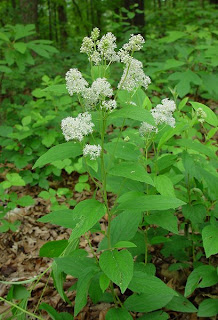CALAMUS

Latin Name: Acorus calamus
Alternate Names: Sweet Flag, Singer's Root, Sweet Sedge, Vacha (Sanskrit), Shi Chang Pu (Chinese)
Family: ARACEAE
Parts Used: Rhizome, root.
Properties: Analgesic, Antibacterial, Antispasmodic, Aphrodisiac, Aromatic, Bitter Tonic, Carminative, Cerebral Stimulant, Demulcent, Diaphoretic, Digestive Tonic, Emetic, Emmenagogue, Expectorant, Febrifuge, Hallucinogen, Nervine, Rejuvenative, Sedative, Stimulant, Stomach Tonic, Tonic.
Internal Uses: Anorexia, Arthritis, Asthma, Bronchitis, Colic, Coma, Cough, Deafness, Depression, Diarrhea, Dysentery, Dyspepsia, Epilepsy, Fatigue, Fever, Flatulence, Gastritis, Headache, Hysteria, Memory Loss, Neuralgia, Rheumatism, Shock, Sinusitis, Stroke
Internal Applications: Tea, Tincture, Capsules.
It is hallucinogenic in large doses. Calamus is beneficial for the nervous system and digestion (it increases circulation to the stomach and intestines). Small amounts reduce stomach acidity, yet larger doses can increase gastric secretions.
Internal Applications: Tea, Tincture, Capsules.
It is hallucinogenic in large doses. Calamus is beneficial for the nervous system and digestion (it increases circulation to the stomach and intestines). Small amounts reduce stomach acidity, yet larger doses can increase gastric secretions.
Topical Uses: Cigarette Addiction, Parasites
Topical Applications: The powder is used as a deodorizing foot powder. The tincture has been used topically for skin parasites. Bath herb. Calamus root is reputed to help reduce the desire for tobacco when smoked.
Culinary uses: Leaf buds and inner stems are eaten raw. Leaves and rhizomes can be candied.
Root stock was used to make sweet flag candy by the Shakers.
Energetics: Bitter, Pungent, Warm, Dry.
Chemical Constituents: Beta-asarone, eugenol.
Contraindications: Calamus contains a constituent called asarone which when isolated may be carcinogenic. However, it has been used in India for thousands of years with no reports of cancer associated with its use. Use for no longer than a month, preferably with professional guidance. Avoid during pregnancy. North American varieties do not contain beta-asarone and are considered safest.
Comments: Calamus is beneficial for the nervous system and digestion. In ancient Egypt and India it was used as an aphrodisiac. It is an important herb in Ayurvedic tradition to help improve mental focus, sexuality and wisdom. In China it is used to aid in the recovery from stroke, especially in helping to improve speech. The folk name 'Singer's root' refers to the use of calamus to numb the throat so one can keep singing and to clear phlegm from the throat. Native Americans would hold a piece of Calamus root in their mouths when running long distances to increase their endurance.

